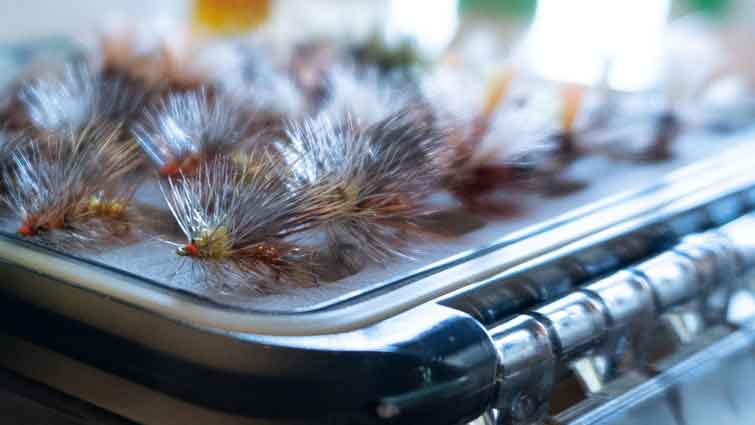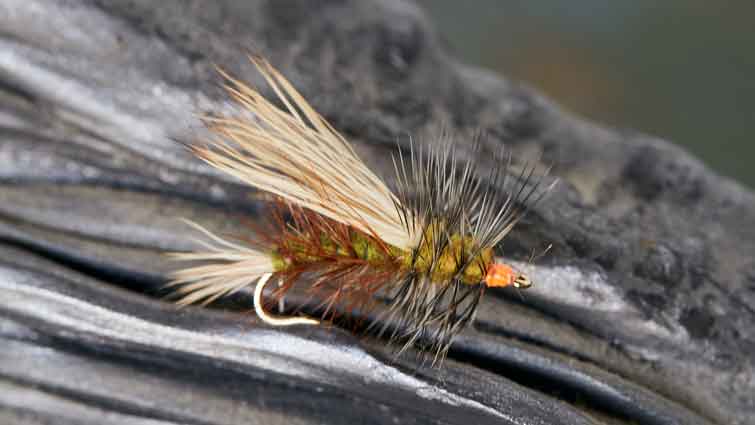Suppose you are thinking of a different kind of sport where you will explore the outdoors more. Then, you see a random person post a giant bass caught from the river near your living place on your social media. That alone is enough to get you hooked on fishing and trying it out. You will gain more interest as you learn different bodies of water and varieties of fish species. To get started, go to any nearest fishing store and get equipped with the necessary fly fishing gear.
Necessary Gear for Fly Fishing
Making a beginner's fly fishing kit from the ground up requires an investment. As you are new, you might want to get ready to use gear in the most affordable price ranges. We have listed some fly fishing gear for you to use on your newfound hobby. If you are interested in spinner fishing and looking for the fishing gear best suited for traditional spinner fishing , you can check out The Nature Insider.
But for this article we will discuss the necessary gear to get out on the water and start catching fish on a fly rod.
A Fly Rod and Reel
There are varieties of fishing rods and reels designed for specific purposes. As a novice, you should choose a multi-purpose combination set that allows you to fish with bait.
Fly reels are slimmer and easier to use. They're just two disks with a cylinder in the middle around which the line is looped and a little knob for a handle. You will be able to catch bass and other common freshwater fishes in your nearby lakes. Fly rods are typically 9 feet long and are notably more agile than traditional fishing rods.
An angler must use the weight of the fly line to generate momentum when casting a fly rod. Before releasing the throw, he continuously moves the rod forward and backward, forcing the fly line to go back and forth as well. This motion generates kinetic and potential energy in the line and rod, respectively.
The length of the fly rod also enables for more efficient use of fly fishing tactics. Keeping more lines out of the water is generally beneficial when fly fishing. You can keep more lines dry and fish better with a longer rod.
Fly Lines
Selecting the correct fly line can be a challenge, even if you want to be a seasoned angler. Fly lines usually let the angler cast the fly instead of the weight of the lure, like spin fishing.
As a beginner, determine what you are going to fish first before buying fly lines. Also, keep in mind that the fly rod should go well with the fly line. Depending on their all-around usefulness, durability, affordability, and compatibility with fly rods, you can go for either mainstream Fly Lines or the Classic Fly Lines. Starting anglers will benefit heavily from this as it is tough to overcomplicate things using it.
Fly Backing
Fly lines are usually connected to a length of braided line wound on the fly reel, which is known as backing. The overall line capacity of the reel determines the required length and breaking strength of the backing.
Backings are commonly as short as a couple of yards up to hundreds of yards, depending on the reel's capacity. The backing can make a bigger diameter spooling surface to fill the entire fly reel. And also, backing can give an extra line for fighting hard or heavy fish.
Flies for Fly Fishing
In the case of fly fishing, people use a light-weighted lure known as an artificial fly to capture fish. In short, fly fishers employ flies as bait. Unlike traditional casting bait, the fly is as light as a feather and is thrown across the water's surface by the fly line's weight.
In fly fishing, fly patterns are typically imitations of different insects, aquatic species, tiny crabs, or baitfish. They have many variations and are available in different colors, shapes, and sizes. Wrapping various materials around a modest single hook creates these small, lightweight objects.
To get the full list of gear recommend for beginners check out this article
The Basic Tips for a Beginner
As you know the necessary gear for a beginner fisherman, you have to know some essential tips for fishing. We have gathered some good information below to help you get started with your hobby-
Begin Small
Try to catch easy-to-catch type fish species first. Begin with a small fly patterns when you start fishing. The majority of the food that trout eat is composed of the larva of small insects. You would be surprised how big of a fish you can catch on a size 22 nymph pattern.
Know Where the Fish are Feeding
Before you start fishing, you have to know your target fish's details and location. Try to gain as much knowledge as you can about the local fish species in your area. You might have the will to catch a specific fish, which can be why you start fishing.
But if you find out late and know that that fish does not grow around your place, you would be very disappointed. So it is recommended to know the fish and its whereabouts first before going out fly fishing.
Get a Fishing Licence
You will require a fishing license before you can begin fishing. You can get the license at fishing shops or online. Do not worry because they are not so complicated to get and affordable. Getting a license can cost you around $20 to $150. It is best to go for an annual license if you are economical with your expenses.
Select Easy Waters for Fishing
After getting your fishing license, choose an easy fishing spot. Steady lakes and ponds can be great places for beginners to catch fish. You will be able to practice your casting and understand the water quickly. The best time to dry fly fishing is the last hour before the sun goes down. If you are close to saltwater areas, go to piers where you will be free from any changing tides.
Follow Guides
Hiring guides can assist you in finding good fishing spots. Guides will be there also to help you read the water. Reading the water is usually tricky for beginners. You can hire guides online or from the local fishing shops. Listen to their tips and techniques as they will develop your skills fast.
Read Forums
For every angler, forums are also a library as they contain a considerable amount of information. You will know from the pros what to use and what they prefer. Additionally, you might even find a fishing buddy from here! As forums are online, beginners do not feel shy, even introverted.
Watch Online Videos
A simple search online regarding fishing tips can show you many results. You can find informative and valuable videos online to develop your knowledge of fishing. Many fishing personalities are free to share their knowledge with beginners. You can find many fishing channels on YouTube, where you will find great suggestive-type videos for your fishing adventure.
Check out our YouTube Channel for great Fly Fishing Lessons Here >
Participate in Events
Joining in fishing events will light up your competitive spirit for fishing. You will get to know many other anglers who also do fishing as their hobby. There are clinics in those events which will help you become a better fisherman.
The Bottom Line
Now that you are all set to give your fishing hobby a shot, you can now select any of your closest pond, lake, or river. Fly fishing is a very adventurous and exciting hobby.
Fishing requires patience, and building up that patience requires a good amount of practice. But as long as you have the right gear and know the basics to learn fly fishing, you will do just fine. Have a clear mentality to learn from others.







